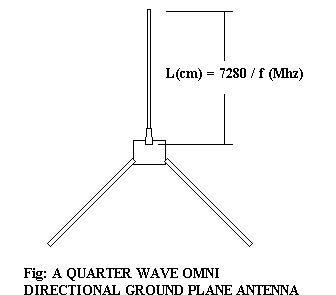
After
you decide which VHF radio is best for you, your next step is to pick out an
antenna. The VHF antenna is a very important part of your VHF Radio System. VHF
antennae come in many lengths and types so, before buying a VHF antenna contact
an expert and determine which style best fits your needs. If you buy the wrong
antenna you will not get the performance your VHF radio is capable of producing.
VHF and DSC equipment are made up of three distinct parts - each part is equally
important. These pieces are:
*
The transceiver
*
The coaxial cable (RG -8 U) with its connectors carrying the signal to or from the antenna and
*
The antenna itself. Even today the cables, connectors and antennae often do not
get the attention they demand.
Yet,
their individual functionality has a notable effect on the performance of the
system as a whole. The wrong antenna or a damaged or poor quality coax cable can
drain the transmission power therein wasting the money spent for a good
installation. At every frequency, besides being free from obstacles, the antenna
has to meet precise electrical and electronic requirements.
When
choosing an antenna it is advisable to discuss with your dealer all the problems
connected with the installation, use of the equipment and the type of
transceiver needed. This will allow you further understand and tackle many
problems before they arise. In case this sort of advice is not available to you,
the information provided below should be helpful in the selection of the proper
antenna.
GAIN
- The "gain" is singularlyy the most important specification of the
antenna. It is indicated in dB (Decibels) which briefly means this: the higher
dB numbers, the greater the range. On the other hand, a high gain will decrease
the antenna radiation patterns. Typically antenna gains are expresses as unity
gain(zero db or Nogain, 3 db, 6 db etc.
HEIGHT- In general, the higher the antenna, the better the range of your radio. VHFs transmit via "line-of-site" radio waves--therefore the higher the antenna, the farther your signal will reach over the horizon. You may be able to talk to a station that may be over twenty miles away (because they have a very tall radio tower) but not your friend who is only a few miles away as their antenna is only a few feet above the ground. Having an antenna with the right gain, and located as high as practicable, will give you the optimal operating conditions for using your VHF radio.
In practical conditions, we have found that a unity gain(o db) omni-directional Ground plane quarter wave antenna gave the best price\performance ratio.
The Antenna performance was measured by a RF watt meter, which is connected in line(series) between the radio and the antenna. The equipment gives a measure of forward power(F),reflected power(R) and VSWR.
VSWR=(F+R)/(F-R)
Under ideal conditions, R=0 or very less and VWSR is 1 or near it for a good antenna.
![]() > VHFHomepage >Antenna
> VHFHomepage >Antenna